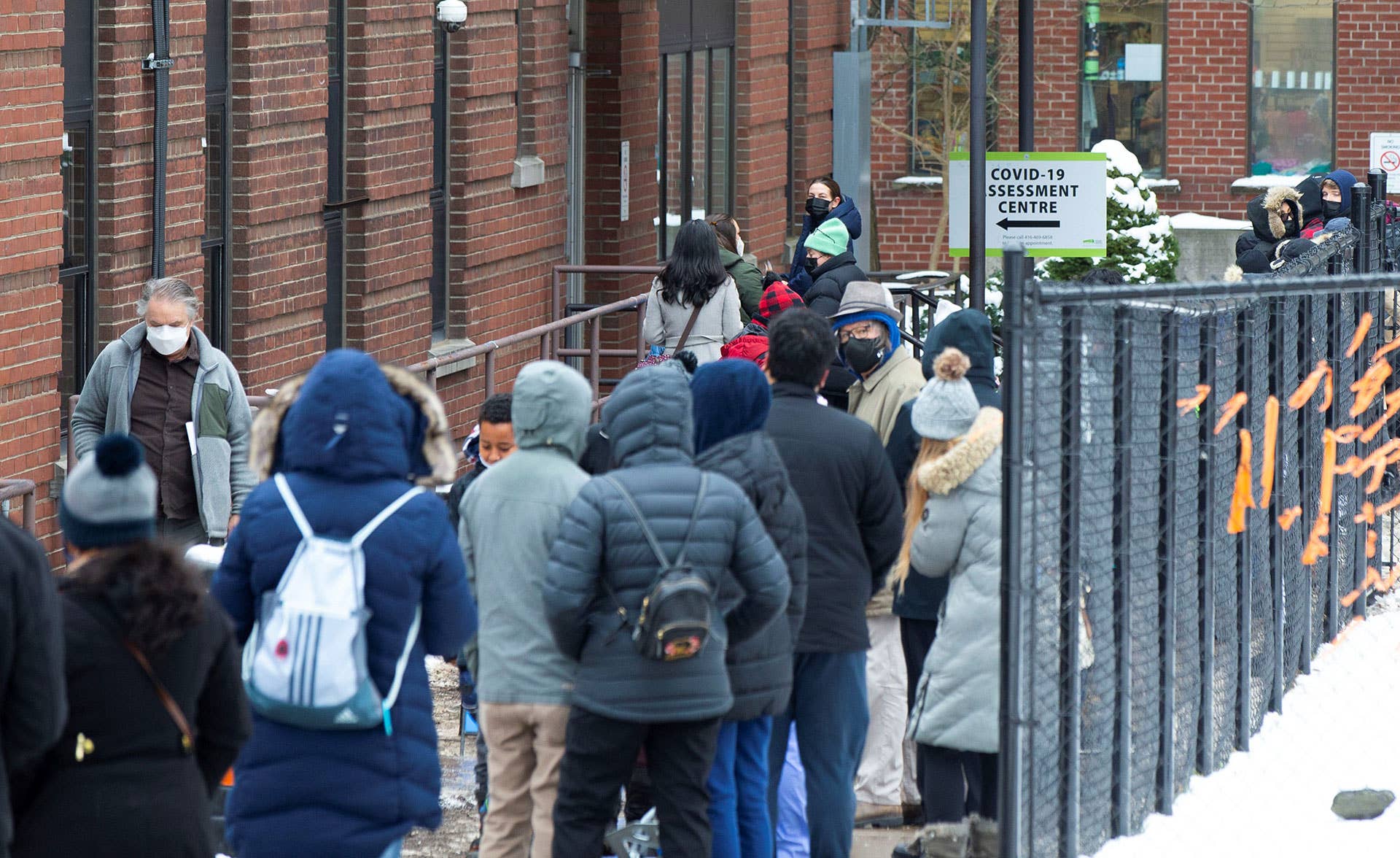
Don’t confuse this with bragging, but Canada has been crushing it in the pandemic Olympics lately.
Daily-infection case records are being broken in provinces from Ontario to Quebec to B.C., and the country just registered its highest new infections figure of 14,456 on Wednesday, Dec. 22, according to Global News’ tally.
Today in Ontario, where the government has reinstated reduced capacity rules for various businesses and gathering places in response to the rising numbers and the new Omicron variant, a total of 5,790 new COVID-19 cases were recorded, the highest in one day since April 2020 (i.e. when the pandemic began). The weekly average in Canada’s most populous province has more than doubled from last week, too, up from 1,674 to 4,001 cases.
Hospitals and healthcare professionals are even busier next door in Quebec, where the system is shattering provincial new infection records daily. La Belle Province logged 5,043 new cases on Dec. 21, but by today that number had almost doubled to 9,397. In Montreal, things have got so infected that one in five residents who receive PCR tests test positive for COVID-19.
British Columbia’s numbers have also been pushing their respective all-time highs, though not quite as drastically: the province’s public health officials reported 1,528 cases on Dec. 22, up a couple hundred from the previous day’s record of 1,308.
Canada’s chief public health officer Dr. Theresa Tam said Wednesday that the Omicron variant is largely responsible for the rising numbers and increased restrictions in certain areas. A total of 2,360 cases of Omicron had been confirmed in Canada as of Tuesday, Dec. 21.
“Modelling shows that by the beginning of January we could have very high number of cases, which underscores the need to act urgently now to reduce the acceleration,” Tam said.
These numbers suggest that, despite the findings of recent studies out of South Africa and then Britain that suggest the Omicron variant is less aggressive and therefore less likely to result in hospitalization than the Delta variant, it is also more easier to transmit and therefore just as potentially deadly and overwhelming.
In all this news, the advice to the public remains the same: get vaccinated, get your booster, stay home, and stay safe.

